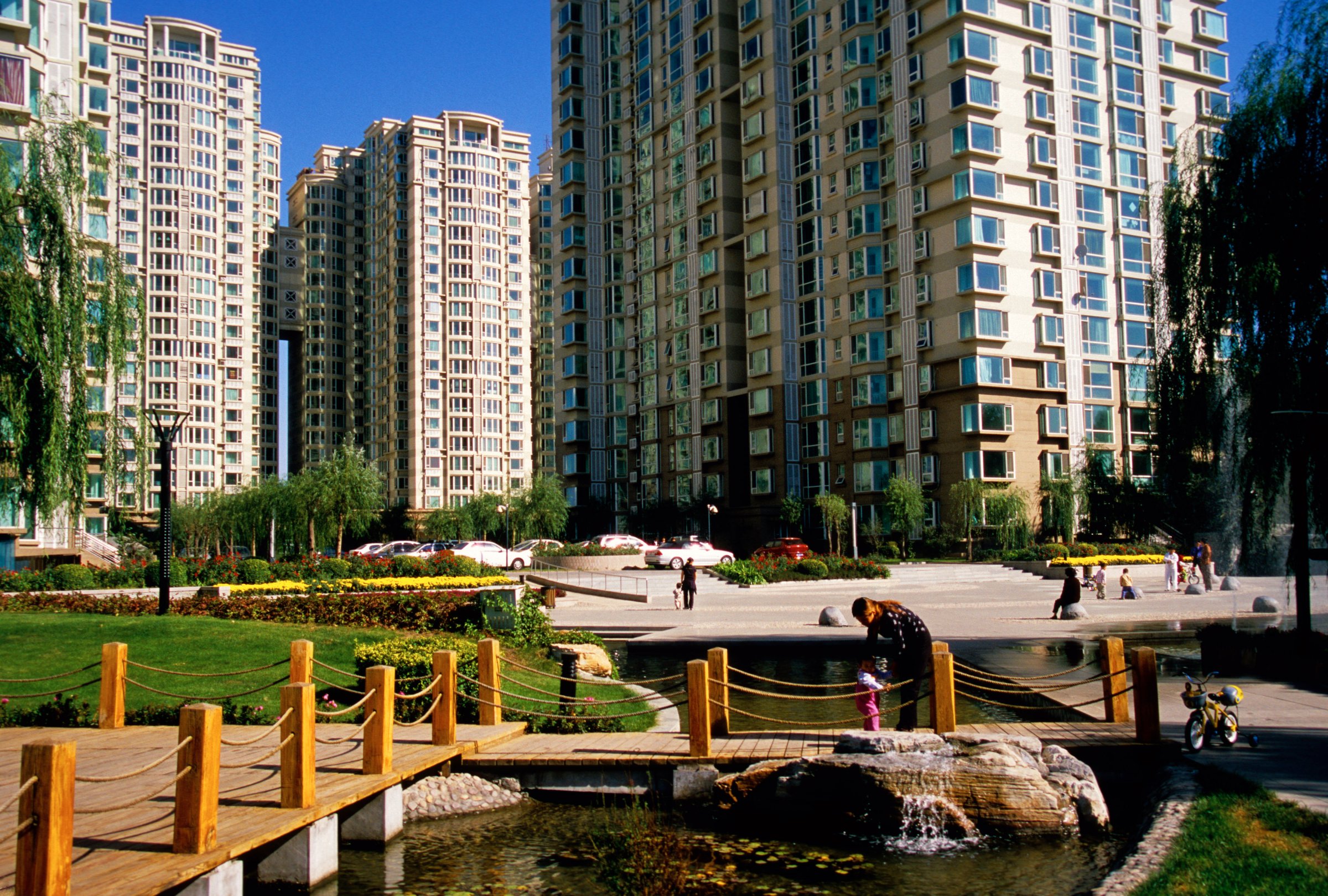
From Rancho Santa Fe, Dream House and Chateau Regalia to Palm Beach Villa, Buckingham Villa and Rits Garden (yes, that’s really how it’s spelled), China has embraced the gated community as a respite from urban-jungle existence. But a new central-government directive is prying open the gates to allow the masses into the manicured confines of Chinese residential enclaves.
The new urban-development regulation declares that internal roads in private housing estates should “gradually open up” to the public in order to ease traffic congestion. In addition, no new gated communities can be built in the future. The rules, which include a ban on “bizarre” or “odd-shaped” architecture as well, are the product of the country’s first Central Urban Work Conference in nearly four decades. (The guidelines also recommend urban planners “vigorously carry out the socialist core values educational learning practice.”) More than half of Chinese now live in cities, up from fewer than 20% when the ruling Chinese Communist Party began its economic reforms in 1978, according to China’s official Xinhua news agency.
Read Next: China’s Government Wants to Ban ‘Bizarre Architecture’
Some members of the gilded classes are up in arms about the prospect of plebeians flooding into their private compounds. Even the Global Times, a patriotic paper linked to the Chinese Communist Party, published a Feb. 23 story sympathetic to “residents arguing that the administrative order, though well-intentioned, may bring personal and property safety concerns.”
During the height of socialist fervor in China, the concept of home ownership was destroyed. Once grand villas were apportioned out to multiple families, sometimes with the mansions’ previous owners relegated to the tiniest quarters. Landowner became an epithet.
But with China’s economic opening, the property market has boomed. For China’s burgeoning middle class, home ownership is the supersize outgrowth of decades in which the government promoted consumerism through the so-called Three Bigs: first a bicycle, sewing machine and wristwatch and then later a washing machine, color TV and air-conditioner. Around 90% of Chinese families now own homes, and much of the nation’s wealth is held in real estate. (In the U.S., home ownership is around 65%.) The trope goes that a prospective Chinese husband must bring an apartment to a marriage or risk continued bachelorhood.
Private villa compounds — with their green spaces, quiet lanes, and, all too often, copious Roman statuary — are the ultimate symbols of urban Chinese success. After all, the by-products of China’s economic expansion — ranging from dirty soil and air to monster traffic and the skyrocketing cost of raising a family — have made city life far less pleasurable than years of GDP-focused growth might have led Chinese citizens to imagine. Just as China announced plans to open up its gated communities, Beijing raised the threshold for pollution “red alerts,” which result in mandatory school and factory closures, as well as further traffic restrictions.
Not every housing-estate resident, though, is against the new rules. Niu Jing, a 25-year-old loan manager, lives in a massive residential community in north Beijing called Tiantongyuan, which claims some 400,000 residents in row after row of apartment blocks. Just to get to the subway station near his apartment, Niu needs at least half an hour to fight through the traffic. His total commute to work is two hours each way. “Beijing is at a crucial moment for solving its traffic problem,” he says, in support of allowing the public to flow through his gated compound. “I wish in the future I can sleep longer in the morning.”
Still, there’s at least one gated community in the heart of Beijing that surely will not open its doors to the public anytime soon: the massive, crimson-walled compound called Zhongnanhai, where China’s secretive Communist Party leaders live.
— With reporting by Yang Siqi / Beijing
More Must-Reads from TIME
- Donald Trump Is TIME's 2024 Person of the Year
- Why We Chose Trump as Person of the Year
- Is Intermittent Fasting Good or Bad for You?
- The 100 Must-Read Books of 2024
- The 20 Best Christmas TV Episodes
- Column: If Optimism Feels Ridiculous Now, Try Hope
- The Future of Climate Action Is Trade Policy
- Merle Bombardieri Is Helping People Make the Baby Decision
Contact us at letters@time.com